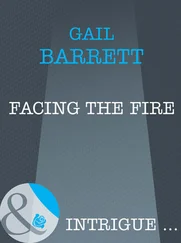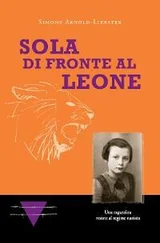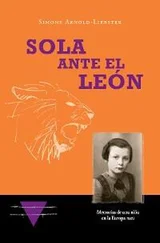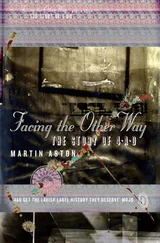1 ...6 7 8 10 11 12 ...23 The doll sat there with outstretched arms, pleading for a mum. And the Christchild knew I yearned for a daughter. I took my doll and right away named her Claudine.
The next day was our Christmas performance. The curtain fell after the first act. More than the applause from the audience, the teacher’s congratulations gave me confidence for the longer act to come. So many times I had dreamed that I was on the stage with an open mouth and no voice!
During the intermission, Aunt Eugenie came to get me. “Leave your angel wings here and come with me. You have plenty of time.”
Aunt Eugenie worked as a governess for the Koch family. “The Kochs want to meet you. They are with your parents in the loge on the balcony.”
In the dim light, I could hardly see the balcony. It had a strange musty odor and red velvet chairs; the place was tiny. Mr. Koch got up, bent over, and extended his right hand to me. He said, “I’m honored to meet such a nice, capable little lady.” He took my hand and kissed it gently. I didn’t know what to do with myself. Happily, Mrs. Koch added, “and how beautifully dressed too!”
“Yes, I am, because Mum made this dress for me!” I loved my black velvet dress with a garland of little pink roses all around the little jacket, and I was proud to let everyone know about it.
Suddenly the loge door opened. Henriette, a poor mentally ill girl, stood in the doorway, a basket hanging around her neck. She trembled all over. With begging eyes, she pushed the basket under someone’s nose. “Buy a little raffle, please, please. You will win.” Everyone in the loge bought one, then she ran out. She went to the next loge. A solitary man waved his hand and shook his head “no. ” She blushed and ran away. Poor girl! How terrible! I felt so bad for her. Mother, disgusted, stared at the man. I followed Mother’s eyes and recognized our parish priest.
The bell rang for the next act. I had to leave. The lights slowly dimmed. I passed Henriette, coming back down the hallway. The priest had called her back in.
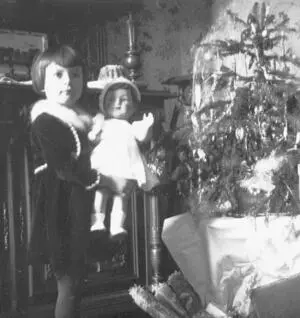 Simone with Claudine, her doll, Christmas 1936
Simone with Claudine, her doll, Christmas 1936
The play was a success. The curtain fell after the last act, but rose again right away. We were called back onto the stage. Some of us had to step forward. The applause filled my eyes with tears. The city theater was packed and everyone was clapping. I felt like running away, yet my feet were as heavy as if they were nailed down. The red velvet curtain came down again. Everyone left, but someone had to take me by the hand. I was worn out and I longed to go home and crawl under the covers.
Mum, who had come behind the stage, kissed me and took me in her arms. I felt her body, stiff and tense. Something had made Mum very upset. With indignation, she said to the theater manager, “Simone will not be in the play again, and I am taking her out of the Skylark girls group. I do not raise a girl to expose her!”
“What do you mean?” the manager asked with surprise.
“You should have seen what happened in the loge next to us!” (The priest had abused Henriette.)
As we walked away, Mum said to me, “Now, you have your daughter, Claudine, waiting for you at home. She needs you. This is better than the Skylarks!” I was so tired. Mother could tell. She was wonderful!
“Yes, I have to take care of Claudine. Poor girl, she is all alone at home!”
Claudine sat next to us while I learned how to knit. Zita was there too. Looking out the window, I saw snow mixed with rain.
The rain spoiled the beautiful, smooth white blanket of snow. Our feet got wet and cold walking in the slush on the way to Aunt Eugenie’s. Her mistress, Mrs. Koch, had asked her to invite me for their Christmas Eve, some days after the 24 thof December.
Mother had given me a lot of orders—always the same ones over and over again. I knew them all. Be polite. Don’t put one foot on the top of the other when you stand. Don’t touch the furniture. Don’t serve yourself. Don’t chew with your mouth wide open. Don’t go in a room if you’re not invited. Don’t put your elbow on the table and hold your head. Don’t play with your hair. Don’t swing your legs when you sit. Don’t, don’t, don’t!
The big villa with marble steps, crystal mirrors, and a colorful carpet made me feel embarrassed. The odor of pine, candles, chocolate, and cake; the loud laughter of the three sons and their cousins; a pine tree reaching up to the ceiling, underneath a mountain of colorful parcels—I wanted to run away.
“Come in, Simone. Don’t be shy. The boys won’t hurt you.”
Aunt Eugenie introduced me to the three boys and their cousins, who clearly were not interested in meeting a girl. Boys are all the same, just like the ones at school who threw chestnuts at us girls. I don’t like boys, I thought.
I sat on a chair so high that my legs dangled. My hair bothered me. My aunt smiled and gently but firmly put one hand on my knee to stop the swinging. She took my hand out of my hair. I blushed. Did anybody else see it?
Mrs. Koch, wearing a wonderful lace dress with a long, three-row necklace, sat next to me. Speaking in French, she said: “Simone, Father Christmas ( Père Noël ) has brought something for you.” And taking my hand, she led me to the beautifully adorned pine tree standing opposite a big lace-covered table. The crystal glasses and silverware reflected the dozens of candles on the tree. This fascinated me more than searching for my gift among the many packages under the tree.
My aunt came to my rescue. “Simone, look for your name.” Under the tree was a manger like the one we had at Christmas in church, but today was not Christmas anymore. Why was it there? My gift was a small box; in it was a wooden man, 20 centimeters high, with a slot in his back. “This is a money box. You put your savings in that slot.” I opened it. It was empty.
I went back to my seat holding my package tightly. The maid in her black dress and white apron came and offered me some sweets. My aunt encouraged me to take one. I was very uncomfortable.
Finally Mrs. Koch said, “Eugenie, in ten minutes a streetcar will be leaving for Dornach. You may accompany the young lady.” What a relief! The maid brought my winter coat, my little polecat fur, and my felt hat. She tried to dress me.
“Oh, no. Please, I’m a big girl now. I can do it myself.” Everybody smiled.
“A true little lady,” Mrs. Koch said. She followed us to the door. Through an open side door, Mr. Koch nodded his gray head to me. Behind him I saw a table with drawers and golden feet and bookshelves up to the ceiling. What kind of room is this? I wondered.
Snow had fallen again. The yellow light shining through all the many windows made the Koch’s house look like a home in a fairy tale.
On the way home, I asked Aunt Eugenie why the Koch’s called the Christchild “Father Christmas, ” why he brought me a gift at the Koch’s home instead of mine, and why he came on a different day. Aunt’s answers seemed incomplete. I was totally confused.
I was happy to return to school after the holiday. However, the classroom was cold. It took quite a while for the newly lit fire to give off some heat. Madeleine, Andrée, Blanche, Frida—none had had a pine tree for Christmas. Each only got one orange and one apple with some nuts, “because,” said Mum, “they are poor.”
That night, under my covers, I accused the Christchild. “Why do you treat rich and poor differently? Why did you give the Koch boys trains, books, games, cars? They got so many presents that they were tired of opening them—and yet you brought nothing, absolutely no toys, to most of my schoolmates? This is injustice, yes, injustice!” Wasn’t that how Dad had explained injustice— favoring the rich over the poor?
Читать дальше

 Simone with Claudine, her doll, Christmas 1936
Simone with Claudine, her doll, Christmas 1936


